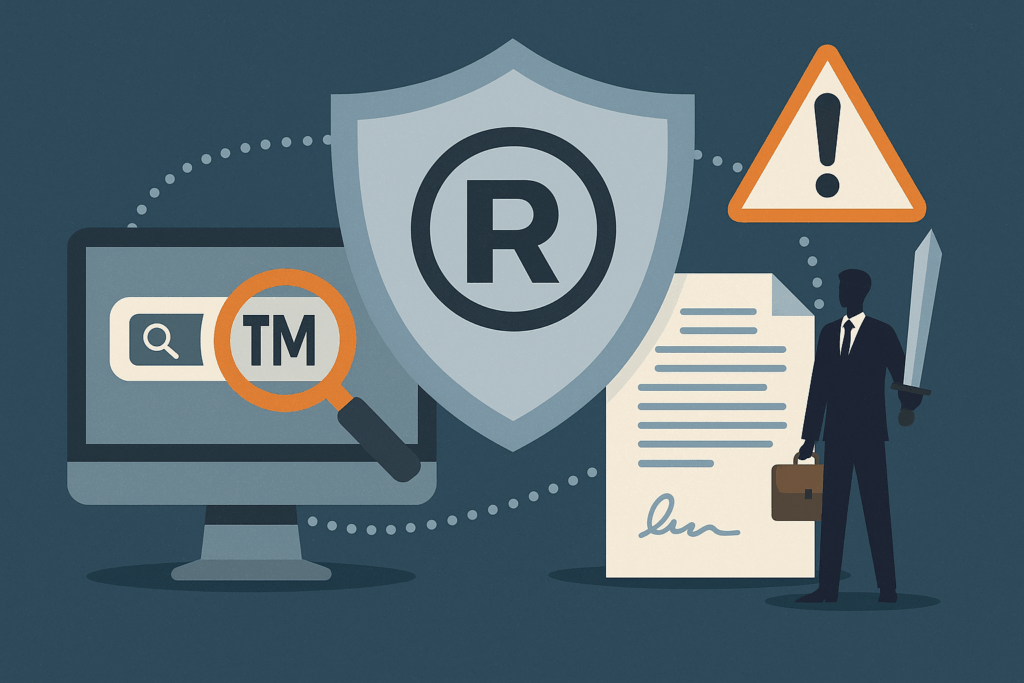Brand Control, Part 10: “The Brand Lives On” — Trade Marks in Exit, Investment, and Succession
 Your brand might be your single most valuable asset. But when serious money is on the table — whether in an investment round, a business sale, or passing the business to the next generation — the question isn’t just what your brand is worth. It’s whether it can stand up to scrutiny.
Your brand might be your single most valuable asset. But when serious money is on the table — whether in an investment round, a business sale, or passing the business to the next generation — the question isn’t just what your brand is worth. It’s whether it can stand up to scrutiny.
💰 IP in Due Diligence
Investors, acquirers, and their lawyers will dig deep. Expect questions like:
-
Does the entity actually own the trade mark registrations?
-
Are they registered — and in the right markets?
-
Are there pending disputes, opposition proceedings, or known copycats?
If the answers aren’t clear, expect your deal timetable (and possibly your deal value) to suffer.
🔗 Assignment and Licensing Clean-Up
A surprising number of brands have messy ownership histories. Fix them now, not during due diligence:
-
Ensure every assignment is documented — especially transfers from founders or prior owners.
-
Identify and resolve any co-ownership or “grey” IP where a contractor or third party may have rights.
-
Review licensing arrangements, particularly where related entities use the brand, to ensure they’re properly authorised.
An untidy chain of title can turn into a deal-breaker.
🧓 Succession Planning
For personal brands and family-run businesses, registered trade marks make succession far smoother. A registered right can be assigned or licensed in a clean, documented transfer — helping preserve not just the name, but the goodwill behind it.
💡 IP Mojo Tip
Your brand won’t retire when you do. If you want it to survive a sale, investment, or handover, protect it like an asset — not a slogan. A clean title today can be worth millions tomorrow.
 As AI capabilities become standard fare in SaaS platforms, software providers are racing to retrofit intelligence into their offerings. But if your platform dreams of becoming the next ChatXYZ, you may need to look not to your engineering team, but to your legal one.
As AI capabilities become standard fare in SaaS platforms, software providers are racing to retrofit intelligence into their offerings. But if your platform dreams of becoming the next ChatXYZ, you may need to look not to your engineering team, but to your legal one. Your brand might be born in a garage, a studio, or a co-working hub — but if your business has international ambitions, your trade mark strategy needs to grow up fast.
Your brand might be born in a garage, a studio, or a co-working hub — but if your business has international ambitions, your trade mark strategy needs to grow up fast. Richards v Black Star Pastry Pty Ltd (No 2) [2025] FedCFamC2G 1226 is a cautionary tale in brand coexistence gone wrong — where parallel growth by two businesses using similar names eventually led to a Federal Circuit and Family Court stoush over coffee, cakes and trade mark rights.
Richards v Black Star Pastry Pty Ltd (No 2) [2025] FedCFamC2G 1226 is a cautionary tale in brand coexistence gone wrong — where parallel growth by two businesses using similar names eventually led to a Federal Circuit and Family Court stoush over coffee, cakes and trade mark rights. Registering a trade mark isn’t the end of your brand protection journey — it’s the start of your enforcement strategy.
Registering a trade mark isn’t the end of your brand protection journey — it’s the start of your enforcement strategy. Imagine this: you take a screenshot of your favourite SaaS dashboard, upload it to a no-code AI tool, and minutes later you have a functioning version of the same interface — layout, buttons, styling, maybe even a working backend prototype. Magic? Almost.
Imagine this: you take a screenshot of your favourite SaaS dashboard, upload it to a no-code AI tool, and minutes later you have a functioning version of the same interface — layout, buttons, styling, maybe even a working backend prototype. Magic? Almost.